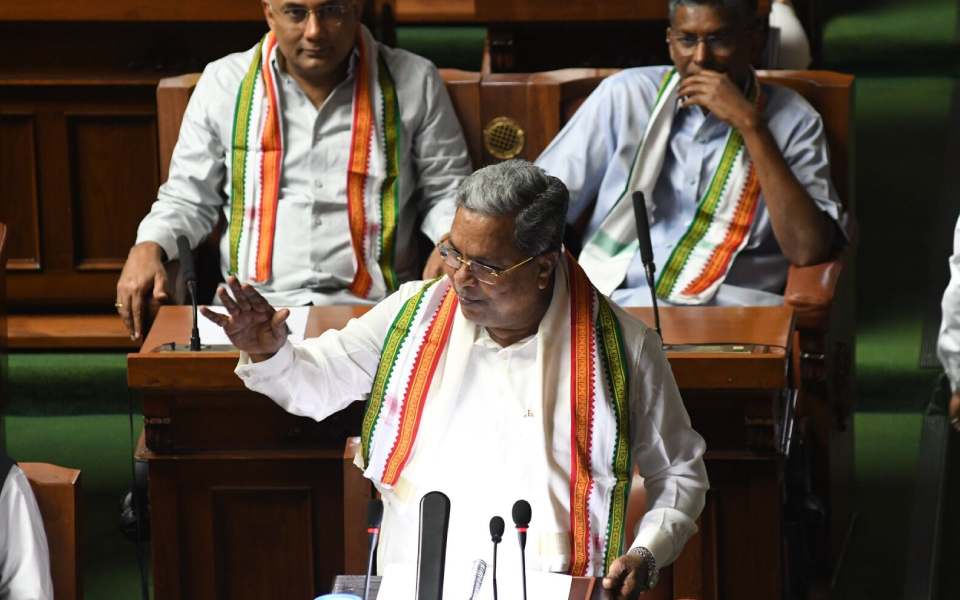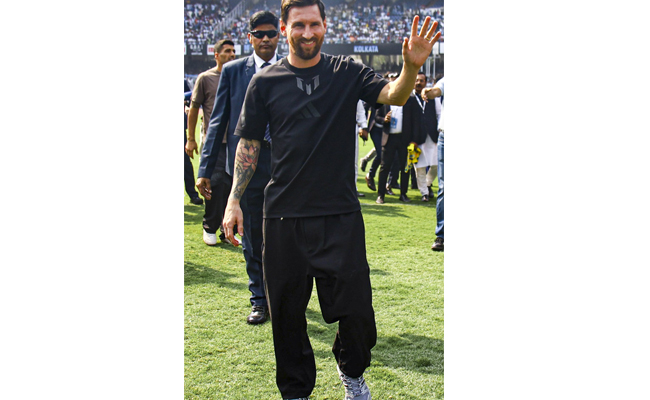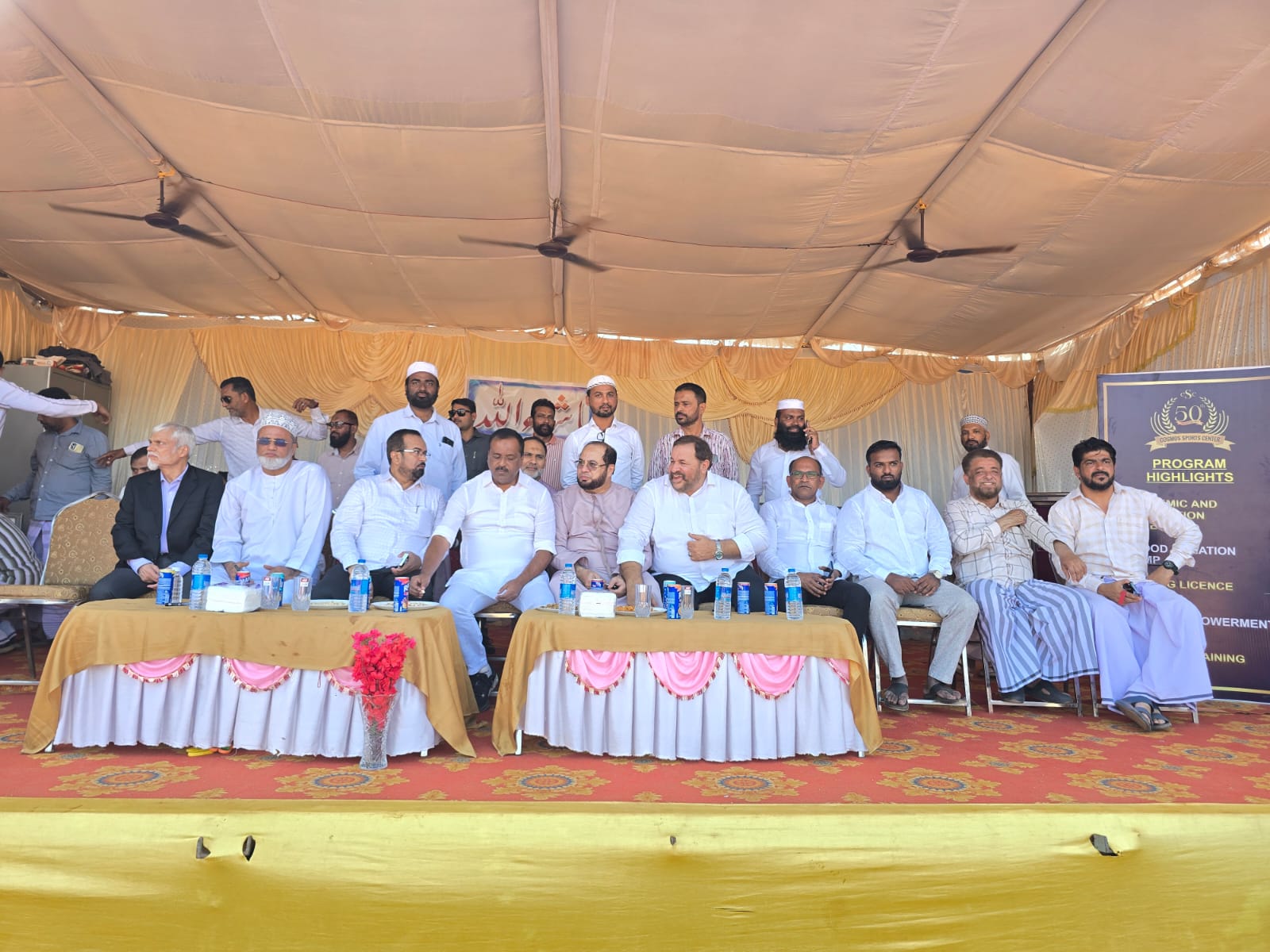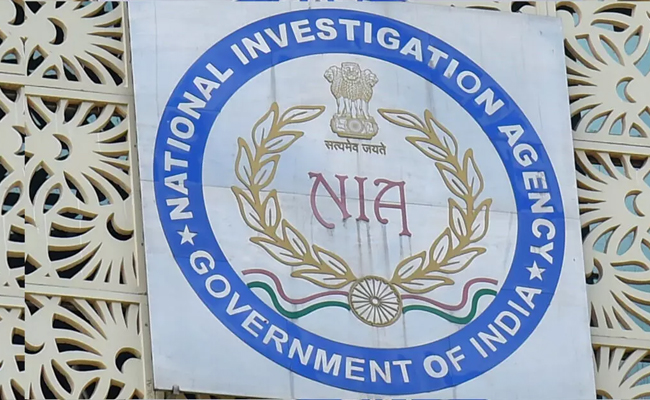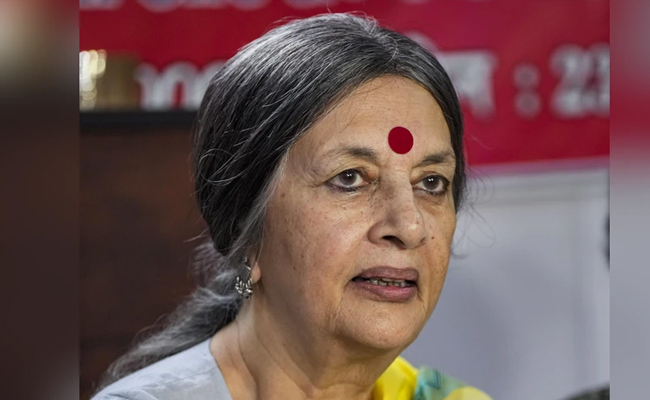Bengaluru: Setting up day-care chemotherapy centres in each district, providing digital mammography machines to 20 district hospitals, colposcopy machines to KC general hospital in Bengaluru and others in districts are among the announcements for the health sector from the Karnataka budget on Friday.
Presenting the 2024-25 budget in the Assembly, Chief Minister Siddaramaiah said state-of-the-art Critical Care Blocks (CCB) will be set up in each district to provide better healthcare to patients suffering from critical illness. Construction has already started in 15 districts.
In the current year, work will be taken up in Udupi, Davanagere, Vijayapura, Mysuru, Mandya, Dharwad and Koppal districts at a cost of Rs 187 crore. CCBs will be set up in the remaining nine districts in the next year, the chief minister said.
He further said that 100-bedded taluka hospitals will be constructed at a cost of Rs 280 crore in Anekal, Nelamangala, Hoskote, Shringeri, Khanapura, Shirahatti and Yelandur talukas. Announcing a grant of Rs 75 crore for repairs and renovation of dilapidated buildings, he said the Mother and Child Hospital building and other infrastructure facilities at the premises of KC General Hospital here will be taken up at a cost of Rs 150 crore.
ALSO READ: Properties in Bengaluru to get digital ownership document: CM Siddaramaiah
In order to provide 24x7 emergency healthcare services to rural people, 25 PHCs will be upgraded to Community Health Centres (CHC) at a cost of Rs 350 crore over the next two years. In the current year, 15 CHCs will be operationalised, the chief minister said.
Forty-six new PHCs will be set up through Kalyana Karnataka Region Development Board at a cost of Rs 221 crore. As many as 6,493 Health and Wellness Centres have been established to provide quality health care services in rural areas. In the current year, Rs 130 crore will be provided for the construction of 199 health and wellness centres. Since there are no chemotherapy treatment centres in most of the districts for providing treatment and for continuous follow-up to cancer patients, a Day-Care Chemotherapy Centre will be set up in each district with Rs 20 crore, Siddaramaiah said.
For early diagnosis and treatment of breast cancer and cervical cancer that are increasing among women, digital mammography machines will be provided to 20 district hospitals and Colposcopy machines will be provided to KC General Hospital and district hospitals of Udupi, Kolar and Davanagere at a cost of Rs 21 crore, he added.
In the next two years, STEMI (Severe Heart Attack) treatment will be extended through Hub-and-Spoke model to all the taluka hospitals.
Also, Rs 32 crore will be provided for the procurement of thrombolytic drugs for the treatment of STEMI and stroke.
An Inquiry Commission has been set up to conduct a judicial inquiry into the serious allegations made in the Public Accounts Committee Report of 2021 regarding management of Covid-19 pandemic, the chief minister announced. Necessary action will be taken based on the report of the Commission, he said.
The Chief Minister said Rs 20 crore will be provided in the next two years to set up 430 laboratories to provide affordable and qualitative laboratory service for residents of Bengaluru. Integrated and Public Health Laboratory (IPHL) will be set up in each of the district hospitals in the next four years to provide qualitative and affordable laboratory services.
IPHLs will be set up in Chikkamagaluru, Vijayanagar, Shivamogga, Belagavi, Mandya, Hassan and Kodagu districts in the current year and in Chitradurga, Bagalakote, Chamarajanagara, Bidar, Koppal, Raichur, Kalaburagi,Uttara Kannada and Gadag during 2025-26, he said. Apart from this, taluka level block Public health laboratories will be established in Hunagunda, Sirsa and Hagaribommanahalli during this year. A total grant of Rs 11 crore will be provided towards this purpose, Siddaramaiah announced.
One Ayurveda diabetes unit each would be set up in the four divisions of the state to provide Ayush treatment to the public for control of diabetes, he said.
Since there are no blood storage units in first referral units of many districts of north Karnataka, it is becoming difficult to supply blood during an emergency. To overcome this, 50 new blood storage units will be established in the next two years, the chief minister said.
Siddaramaiah said Rs six crore will be provided for procurement of 87 True-Nat machines for screening of tuberculosis in PHCs for eliminating tuberculosis by 2025. Also, a grant of Rs 400 crore will be provided for construction and purchase of equipment for medical colleges and Rs 130 crore will be provided for construction of super speciality hospitals, he added. The existing 40-bedded Nephro-Urology hospital in Mysuru will be upgraded to a 100-bed hospital and a Child Health Care unit will be set up in Kalaburagi Medical College hospital with technical assistance from Indira Gandhi Institute of Child Health, Siddaramaiah said.
Let the Truth be known. If you read VB and like VB, please be a VB Supporter and Help us deliver the Truth to one and all.
Mumbai (PTI): In view of Argentine superstar footballer Lionel Messi's visit to Mumbai on Sunday, the city police are implementing stringent security measures, like not allowing water bottles, metals, coins inside the stadiums and setting up watchtowers to keep an eye on the crowd, officials said.
The police also said taking extra care to avoid any stampede-like situation and to prevent recurrence of the chaotic situation that unfolded in Kolkata during Messi's visit on Saturday as thousands of fans protested inside the Salt Lake stadium here after failing to catch a clear glimpse of the football icon despite paying hefty sums for tickets.
Messi is expected to be present at the Cricket Club of India (Brabourne Stadium) in Mumbai on Sunday for a Padel GOAT Cup event followed by attending a celebrity football match. He is expected to proceed to the Wankhede Stadium for the GOAT India Tour main event around 5 pm.
"In view of Lionel Messi's visit to Mumbai, the police are geared up and have put in place a high level of security arrangements in and around the stadiums located in south Mumbai. Considering the chaos that prevailed in Kolkata and the security breach, we have deployed World Cup-level security arrangements at Brabourne and Wankhede stadiums," an official said.
Expecting heavy crowd near the stadiums during Messi's visit, the city police force has deployed more than 2,000 of its personnel near and around both the venues, he said.
As the Mumbai police have the experience of security 'bandobast' during the victory parade of ICC World Cup-winning Indian team and World Cup final match at the Wankhede Stadium, in which over one lakh cricket fans had gathered, we are prepared to handle a large crowd of fans, he said.
"We are trying to avoid the errors that occurred in the past," the official said.
There is no place to sneak inside the stadiums in Mumbai like the Kolkata stadium, according to him.
The police are also asking the organisers to provide all the required facilities to the fans inside the stadium, so that there will be no chaos, he said, adding the spectators have purchased tickets in the range of Rs 5,000 to 25,000. After paying so much of amount, any spectator expects proper services, while enjoying the event, he said.
The police are expecting 33,000 spectators at the Wankhede Stadium and over 4,000 at Brabourne Stadium. Besides this, more than 30,000 people are expected outside and around the stadiums just to have a glimpse of the football sensation, he said.
The organisers responsible for Messi's India visit recently came to Mumbai to discuss security arrangements. During the meeting, the Mumbai police asked them not to take the event lightly, according to the official.
After those requirements were fulfilled, the final security deployment was chalked out, he said.
Police has the standard procedure of the security arrangements inside the Wankhede Stadium, where people are barred from taking water bottles, metals objects, coins. Police are setting up watch towers near the stadiums and there will be traffic diversions, so that there is maximum space available to stand, according to the official.
Police are also appealing to the spectators to use public transport service for commuting and avoid personal vehicles to reach south Mumbai.
To avoid any stampede-like situation, police are also taking precautionary measures and will stop the fans some distance ahead of the stadium and public announcement systems will be used to guide the crowd. Barricades will be placed at various places to manage the crowd.
In case the crowd swells up beyond expectation, the police will divert people to other grounds and preparations in this regard underway, he said.
Additional police force has been deployed in south Mumbai to tackle any kind of situation, he said.

